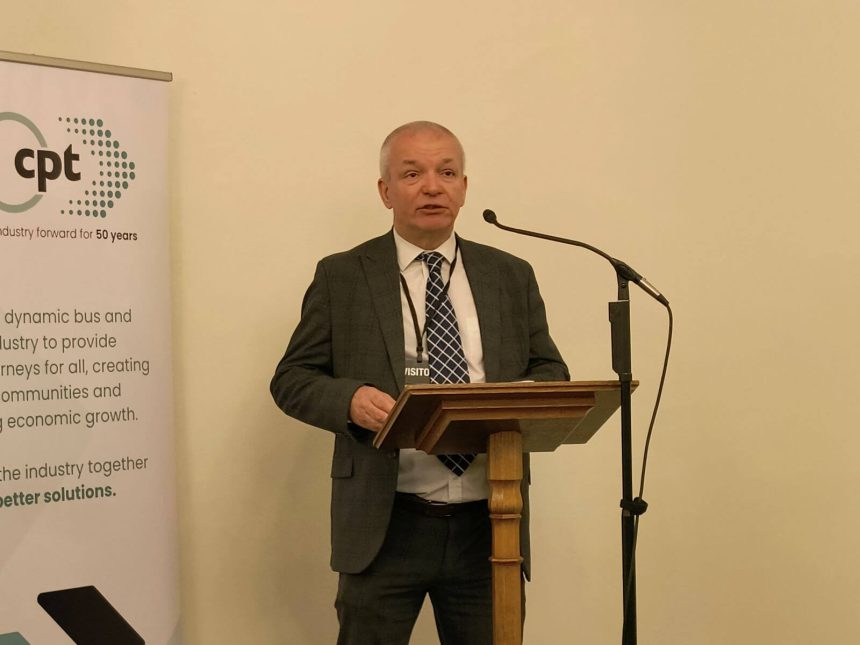Partnerships with local transport authorities (LTAs) will be crucial to the decarbonisation process for rural bus operations, concludes the Confederation of Passenger Transport’s (CPT) Rural Zero-Emission Bus Taskforce via its inaugural report.
The document, which was launched today at the Houses of Parliament, also called on government to commit to a five-year £1 billion investment programme for zero-emission buses and to support flexibility for LTAs and operators to pursue “solutions which suit their local circumstances”.
The taskforce, which was established in June 2023, is chaired by former Trentbarton Managing Director Chief Executive Jeff Counsell and its members also include ALBUM Chair Bill Hiron and representatives from Stagecoach, Go-Ahead, First Bus and Transdev.
Decisions concerning successful bids in the second round of Zero-Emissions Bus Regional Areas scheme (ZEBRA 2) will be announced next month, but the taskforce has identified specific challenges for urban services, such as range requirements, infrastructure difficulties and a greater reliance on tendered contracts.
Labour’s shadow Transport Minister, Simon Lightwood, CPT Policy Manager Becki Kite and Mr Hiron were among speakers at the launch.
The report presents the idea that work with LTAs would be central to the solution. It calls upon each of those authorities to set up a “local transport energy taskforce with key local stakeholders to determine a decarbonisation strategy for the area, where appropriate, which prioritises energy for buses and identifies shared infrastructure sites”.
LTAs should also not delay in processing applications for infrastructure at depots and should look to develop a lease model for authority-owned buses with funding from central government, it says.
The report calls on the government to support development of longer-range battery technology and to provide certainty over hydrogen supply chains. Shared hydrogen refilling and electric charging sites – possibly owned by LTAs – would help smaller, rural operators, it points out.
It says the government and Ofgem should require Distribution Network Operators to prioritise electricity supply for operators.
Aside from the £1 billion package requested in England, the taskforce refers to commitments needed from the Scotland and Wales governments.
Further with regards to financial constraints, CPT will conduct research to “produce a model which will demonstrate when we can expect second-hand or cascaded zero-emission vehicles to appear on rural routes”. Vehicles owned by LTAs and leased to operators could be an option, it is recognised. Mention is also given to repowering as an avenue towards zero-emissions.
Speaking in her address at the launch, Ms Kite says: “The taskforce was not only established to identify the challenges but also what measures are needed to overcome them. The report that we’re launching outlines the commitments for the bus sector, the government and the local transport authorities and it will enable sustainable transition to zero-emissions for rural bus services.”
She refers to ZEBRA and the Scottish Zero Emission Bus challenge fund but adds: “It’s not possible to look at electric buses in isolation. If the government wants to see the entire bus sector transition to zero-emission alternatives, there does need to be a wider support package made available which moves us away from the stop-start approach to funding and delivers certainty to the whole supply chain.”
She adds: “During the discussions, repowering was identified as a potential for some operators. It could provide a more affordable option so we are going to work with Kleanbus and other technology providers to determine the optimum age that will deliver the best investment to repower a diesel bus. We’ll also look to do some modelling to determine when we can expect to have stable second-hand market as well.”
Outlining’s CPT’s commitment, she concludes: “We will continue to liaise with government, local transport authorities and other key stakeholders to take this work forward and ensure that our rural bus services and passengers aren’t left behind.”



























